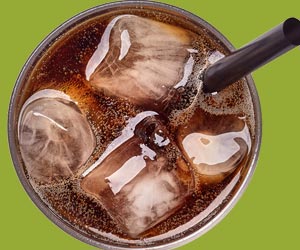Higher consumption of sugary beverages may be linked to an increased risk of death from cardiovascular diseases.

TOP INSIGHT
Frequently consuming sugary beverages can increase the risk of mortality from cardiovascular diseases. However, replacing with low-calorie sweetened drinks (artificially sweetened) can help reduce intake of sugar-sweetened drinks.
Read More..
"Drinking water in place of sugary drinks is a healthy choice that could contribute to longevity," said Vasanti Malik, Sc.D., lead author on the paper and a research scientist in the Department of Nutrition in the Harvard T.H. Chan School of Public Health in Boston, Massachusetts. "Diet soda may be used to help frequent consumers of sugary drinks cut back their consumption, but water is the best and healthiest choice."
Although people have been drinking fewer sugary drinks in the United States in the past decade, soda and other sweetened drinks still represent the single largest source of added sugar in the U.S. diet and their consumption is on the rise around the world.
Much attention has been given to a potential link between soft drinks, weight gain and health problems related to weight gain such as cardiovascular disease and diabetes. But few studies have examined whether sugar-sweetened beverages or artificially sweetened beverages can be linked to mortality.
The current study used data from two large-scale longitudinal studies to do just that. Researchers examined data from 37,716 men in the Health Professionals follow-up study and 80,647 women in the Nurses' Health Study. They controlled for other dietary factors, physical activity and body mass index so that any effect measured could be independently linked with sugar-sweetened beverages. It also examined the association between drinking artificially sweetened beverages and death.
 MEDINDIA
MEDINDIA




 Email
Email










